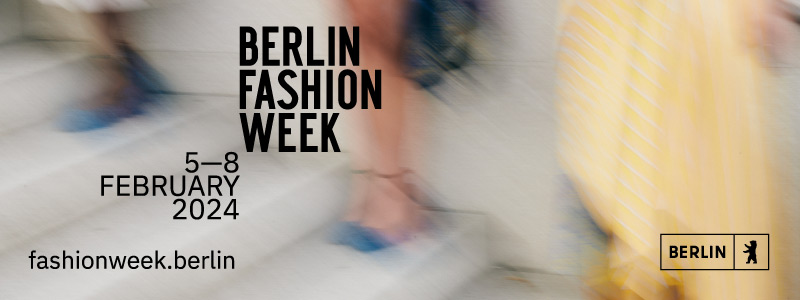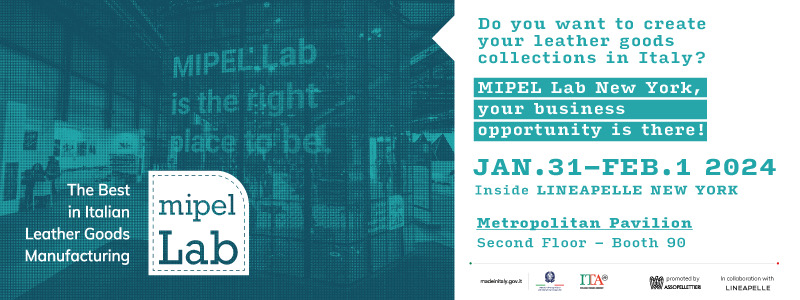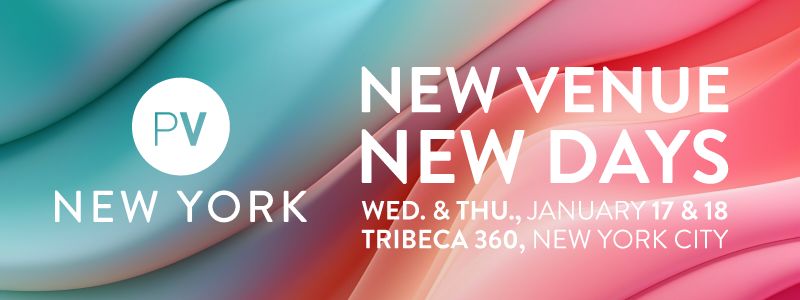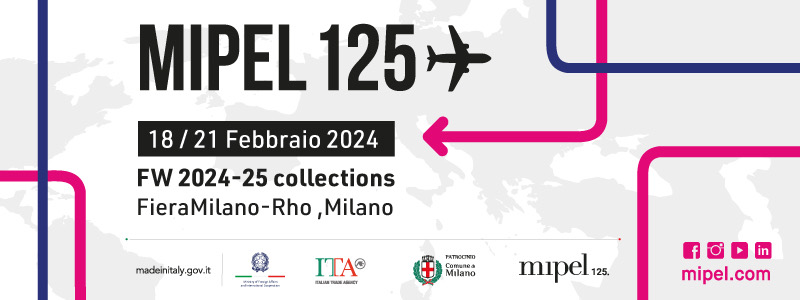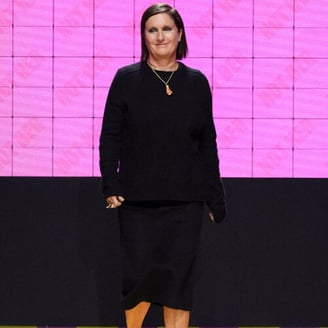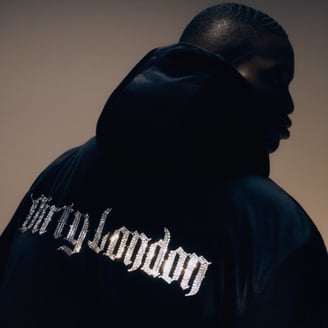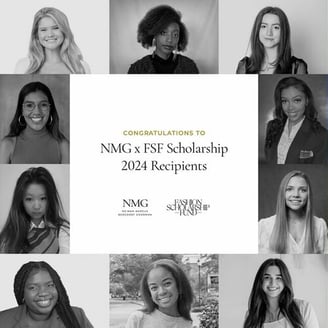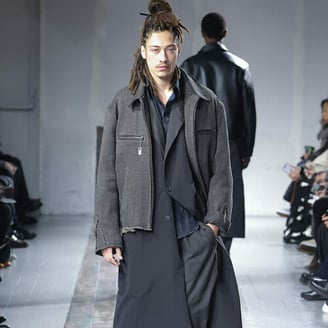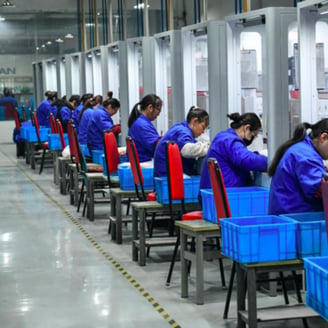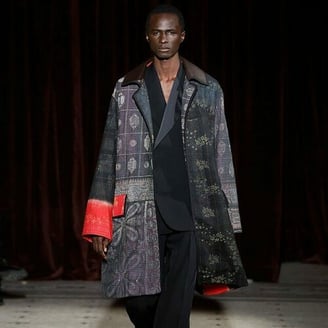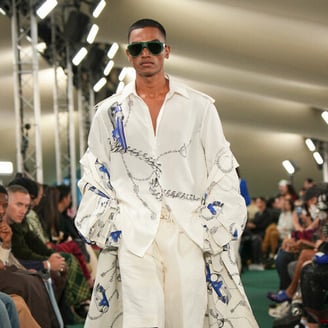From product sheets to design, AI is changing the fashion industry
While the general public is beginning to embrace generative AI which, simply put, offers personalised texts and images, the fashion and luxury sectors are using artificial intelligence to generate advertising campaigns, product sheets, customer experiences, and even the products themselves. But while AI seems to be the main priority of brands and distributors, it is also a source of fear. FashionNetwork.com has taken a look at how AI has already changed some practices in the fashion and luxury industries, with a first chapter on marketing and the creative fields.

By deploying AI-generated visuals for its campaigns at the end of October, Amazon confirmed the importance of artificial images in the commercial sector. Brand managers and their customers have become familiar with consumer-generated AIs such as Dall-E and Midjourney. And more and more solutions are being developed to automatically cut out products from an image and place them in virtual sets. These sets are born of artificial intelligence, and brands must now learn to manage its potential.
"We tell our customers that our tool is like Canva and ChatGPT having a baby, which we can channel towards commercial objectives," explains Cédric Derozier, sales director of AdCreative.ai, a Paris-based agency launched two years ago. With Adidas, Tiffany&Co and Chopard as clients, this start-up's AI can generate campaign visuals in just a few minutes, based on the targeted audience and brief. Punchlines and call-to-actions are generated automatically from product pages. "It will soon be possible to generate videos in the same way," says the manager. At a time when illustrators and photographers are worried that AIs are borrowing too much from their work, the manager points out that the images are generated from a bank of 100 million royalty-free images.
The AI's capacity to place a product in a world created by the machine, also enables it to study the product itself. Therefore, it is also able to write product information sheets itself. Here again, brands can tailor the generation process to their own objectives, their own language, and to highlight a product's strong points. "We first had to explain this whole process to the brands," explains Yosr Mhiri, co-founder of the specialist YZR, which works for Decathlon, La Redoute, Monoprix and Leclerc. "But this partial automation has become a question of survival and not simply of competitive advantage," says Yosr Mhiri, referring to the difficulties in a sector where freeing up time for teams means greater success.
Sébastien Garcin, chairman of the aforementioned company YZR, confesses to adoring the fashion and luxury sectors, for one simple reason: it is the commercial sector that takes the greatest care with its product visuals. And polished photos make it easy for AI to verbalise the attributes of a product, from the colour to the material and the cut. "And with the acceleration of collections, AI is also responding to the need for rapid product layout," says the manager.
AI versus designers?
Since artificial intelligence already knows how to play on consumer expectations via campaigns or product sheets, the big question now is how it will interfere in the creative process for clothing. Will AI soon be able to create viable patterns based on a simple description? The question is divisive, because of the opposition between digital rigour and creative freedom, but that hasn't stopped some brands from taking the plunge. For the CES show in Las Vegas in January 2024, The Kooples is presenting a collection generated by AI "fusing the timeless elegance of the brand with the power of generative AI from Imki," a start-up specialising in the field.
"I don't know if we'll be able to replace creative directors with AI," doubted Anouck Duranteau-Loeper, CEO of Isabel Marant, at the end of November during a speech at the Fashion Reboot event organised by the French Fashion Institute. "I'm firmly convinced that beauty is created through imperfection and surprise, whereas an AI creation will be perfect, and will therefore have less charm," says the CEO, who drew on a visit to China to highlight the emergence of 100% virtual influencers, who use AI to offer a sustained rhythm of publications.
"What makes our products special is their creativity and quality. Under no circumstances do we want to use data, digital platforms and AI to replace what is the raison d'être of luxury," confirmed Grégory Boutté, Kering's director of digital and customer relations, at the same event. But Boutté is not closing the door entirely: "Automation is not a subject that we have prioritised for the moment," he says. "The quantities and the way we produce do not necessarily justify it."

"AI can be a help, but not a substitute," says David Galley, associate director of BCG X, the tech arm of Boston Consulting Group. He is joined on this point by Jean Robino, strategic director of the agency The Next Playground, which trains brand teams on the subject, and who points to the widespread fantasy of an AI doing all the work: "It's like sculpture: you start with a monolith, but each new request will refine the work of the AI, until you end up with what you had in mind," explains the specialist. In his view, it will therefore be a matter of creative people getting to grips with these new processes. On average, he reckons that 20% of the brand teams he meets are resistant to AI.
And those who are reluctant also include senior executives. "AI is going to force us to rethink the way companies are organised," said Nathalie Balla, former CEO of La Redoute, at the recent Tech for Retail trade show. "Some jobs will disappear, others will be revolutionised. This technological transformation is going to have an impact on employment. We need to approach this with transparency with employees, otherwise there will be strong resistance."
This resistance could also be legal. For example, the British courts have just rejected an attempt by an American computer scientist to register patents for inventions generated by his artificial intelligence. The application was rejected on the grounds that the inventor must be a human or a company, not a machine. A legal precedent that raises the legal issue of artificial artistic creation.
AI in the service of fakes
On the other hand, counterfeiters will be few and far between, as will brands that are known to be "inspired" by other labels. During the summer, three designers in the United States launched a lawsuit against the Chinese company Shein, whose AI is said to have simply copied their designs. It's a system that sheds light on the company's capacity to generate 8,000 new designs a day. A practice that is all the more worrying for the fashion industry, given that while AI must rely on what already exists in order to "create", it can itself add or remove the famous "distinctive elements" that make the difference between a similar product and a counterfeit.
So it comes as no surprise that the luxury goods sector, a prime target for counterfeiters, has for several years been looking to AI to respond to this threat. Because while artificial intelligence can analyse a product and copy it, it can also identify the copies that appear on sales sites.
"We're still in the early stages of thinking about this," Grégory Boutté of Kering told FashionNetwork.com. "Many start-ups are now positioning themselves on the use of AI to detect fakes. Our approach is to look at what exists, and how these solutions can be added to our systems already in place, which, as you can imagine, are very rigorous, as we are investing heavily in this area. We haven't yet identified this solution that will amplify our efforts, so we're still in an exploratory phase."
At Google, however, intellectual property infringement is already considered to be the first of the major risks associated with AI, ahead of "misinformation, the societal impact on employment and finally the environmental burden," lists the managing director of Google France, François Loviton, at the Tech for Retail trade fair in Paris in November 2023. "We're only at the very beginning of the acceleration of AI, and we don't know how far it will go. The opportunities are enormous, but the responsibility of companies is crucial."
In a second instalment, FashionNetwork.com will take a look at the possibilities of AI for personalising the customer experience, as well as the possibilities offered in terms of optimising sourcing, whether at the scale of shop networks or the production chain itself.
Copyright © 2024 FashionNetwork.com All rights reserved.



